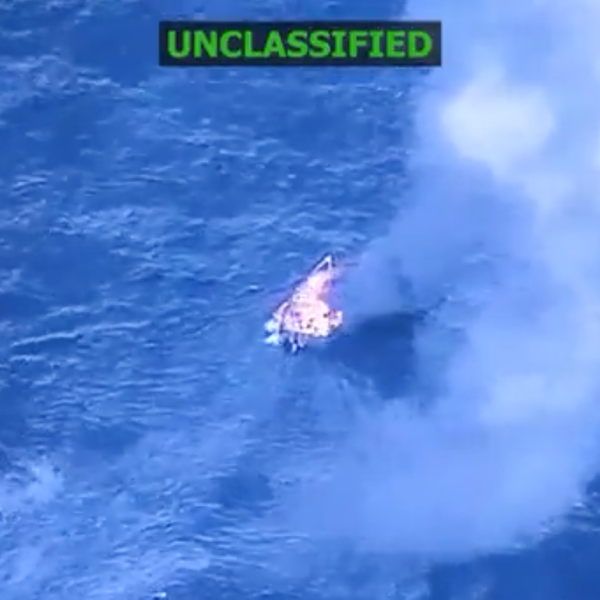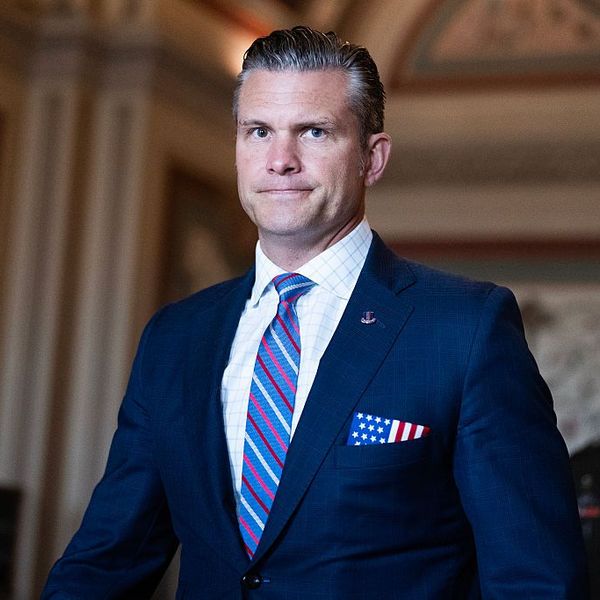Pulling Staff from Kunduz, MSF Labels US Airstrike a War Crime
MSF director calls for independent investigation into bombing which U.S. military claims was targeting Taliban after first calling it 'collateral damage'
Doctors Without Borders/Medecins Sans Frontieres (MSF) on Sunday called the U.S. military's Saturday airstrike on its charity hospital in Kunduz, Afghanistan a war crime and announced it was withdrawing all staff from the beleaguered area.
MSF said 22 people, including medical workers and patients, were killed in the bombing, which occurred around 2:10 am local time and reportedly lasted for at least half an hour.
"Under the clear presumption that a war crime has been committed, MSF demands that a full and transparent investigation into the event be conducted by an independent international body," said MSF general director Christopher Stokes in a statement on Sunday.
The U.S. military, which initially described the hit as "collateral damage," is now claiming that Taliban fighters had been hiding in the medical center.
Stokes rejected those charges, stating unequivocally, "Not a single member of our staff reported any fighting inside the MSF hospital compound prior to the US airstrike on Saturday morning. The hospital was full of MSF staff, patients and their caretakers. It is 12 MSF staff members and ten patients, including three children, who were killed in the attack."
"We reiterate that the main hospital building, where medical personnel were caring for patients, was repeatedly and very precisely hit during each aerial raid, while the rest of the compound was left mostly untouched," Stokes said. "We condemn this attack, which constitutes a grave violation of International Humanitarian Law."
The charity said all its most critical patients had been referred to other medical centers in the region, and that no MSF staff remained at the hospital in Kunduz, although some had volunteered to work at nearby clinics.
President Barack Obama on Saturday said the U.S. would conduct an investigation into the bombing, but would wait until the Department of Defense completed its own probe--a response which MSF rejected as weak.
"Relying only on an internal investigation by a party to the conflict would be wholly insufficient," Stokes said Sunday.
Physicians for Human Rights (PHR), a medical and science advocacy organization, also referred to the targeting of a hospital as a war crime and similarly called for an independent investigation into the bombing.
"This is truly horrific and inexcusable," said PHR director of international policy and partnerships Susannah Sirkin. "Targeting a hospital is a war crime and warring parties are obligated to take every measure possible to avoid attacking health facilities."
MSF said Saturday that it had given its coordinates to both sides involved in the fighting, including Washington and Kabul.
"Medical workers now have targets on their backs as they pursue their life-saving work," said Sirkin. "Extra steps must be taken to avoid harm to civilians and civilian infrastructure even if there is a legitimate target in the vicinity."
Meanwhile, the crisis in the northern city continued to escalate. Saad Mukhar, the Kunduz provincial public health director, said Kunduz faced "a serious, drastic shortage of medicine."
"I'm afraid that if this situation continues, we will not be able to help our patients," Mukhar said.
An Urgent Message From Our Co-Founder
Dear Common Dreams reader, The U.S. is on a fast track to authoritarianism like nothing I've ever seen. Meanwhile, corporate news outlets are utterly capitulating to Trump, twisting their coverage to avoid drawing his ire while lining up to stuff cash in his pockets. That's why I believe that Common Dreams is doing the best and most consequential reporting that we've ever done. Our small but mighty team is a progressive reporting powerhouse, covering the news every day that the corporate media never will. Our mission has always been simple: To inform. To inspire. And to ignite change for the common good. Now here's the key piece that I want all our readers to understand: None of this would be possible without your financial support. That's not just some fundraising cliche. It's the absolute and literal truth. We don't accept corporate advertising and never will. We don't have a paywall because we don't think people should be blocked from critical news based on their ability to pay. Everything we do is funded by the donations of readers like you. Will you donate now to help power the nonprofit, independent reporting of Common Dreams? Thank you for being a vital member of our community. Together, we can keep independent journalism alive when it’s needed most. - Craig Brown, Co-founder |
Doctors Without Borders/Medecins Sans Frontieres (MSF) on Sunday called the U.S. military's Saturday airstrike on its charity hospital in Kunduz, Afghanistan a war crime and announced it was withdrawing all staff from the beleaguered area.
MSF said 22 people, including medical workers and patients, were killed in the bombing, which occurred around 2:10 am local time and reportedly lasted for at least half an hour.
"Under the clear presumption that a war crime has been committed, MSF demands that a full and transparent investigation into the event be conducted by an independent international body," said MSF general director Christopher Stokes in a statement on Sunday.
The U.S. military, which initially described the hit as "collateral damage," is now claiming that Taliban fighters had been hiding in the medical center.
Stokes rejected those charges, stating unequivocally, "Not a single member of our staff reported any fighting inside the MSF hospital compound prior to the US airstrike on Saturday morning. The hospital was full of MSF staff, patients and their caretakers. It is 12 MSF staff members and ten patients, including three children, who were killed in the attack."
"We reiterate that the main hospital building, where medical personnel were caring for patients, was repeatedly and very precisely hit during each aerial raid, while the rest of the compound was left mostly untouched," Stokes said. "We condemn this attack, which constitutes a grave violation of International Humanitarian Law."
The charity said all its most critical patients had been referred to other medical centers in the region, and that no MSF staff remained at the hospital in Kunduz, although some had volunteered to work at nearby clinics.
President Barack Obama on Saturday said the U.S. would conduct an investigation into the bombing, but would wait until the Department of Defense completed its own probe--a response which MSF rejected as weak.
"Relying only on an internal investigation by a party to the conflict would be wholly insufficient," Stokes said Sunday.
Physicians for Human Rights (PHR), a medical and science advocacy organization, also referred to the targeting of a hospital as a war crime and similarly called for an independent investigation into the bombing.
"This is truly horrific and inexcusable," said PHR director of international policy and partnerships Susannah Sirkin. "Targeting a hospital is a war crime and warring parties are obligated to take every measure possible to avoid attacking health facilities."
MSF said Saturday that it had given its coordinates to both sides involved in the fighting, including Washington and Kabul.
"Medical workers now have targets on their backs as they pursue their life-saving work," said Sirkin. "Extra steps must be taken to avoid harm to civilians and civilian infrastructure even if there is a legitimate target in the vicinity."
Meanwhile, the crisis in the northern city continued to escalate. Saad Mukhar, the Kunduz provincial public health director, said Kunduz faced "a serious, drastic shortage of medicine."
"I'm afraid that if this situation continues, we will not be able to help our patients," Mukhar said.
Doctors Without Borders/Medecins Sans Frontieres (MSF) on Sunday called the U.S. military's Saturday airstrike on its charity hospital in Kunduz, Afghanistan a war crime and announced it was withdrawing all staff from the beleaguered area.
MSF said 22 people, including medical workers and patients, were killed in the bombing, which occurred around 2:10 am local time and reportedly lasted for at least half an hour.
"Under the clear presumption that a war crime has been committed, MSF demands that a full and transparent investigation into the event be conducted by an independent international body," said MSF general director Christopher Stokes in a statement on Sunday.
The U.S. military, which initially described the hit as "collateral damage," is now claiming that Taliban fighters had been hiding in the medical center.
Stokes rejected those charges, stating unequivocally, "Not a single member of our staff reported any fighting inside the MSF hospital compound prior to the US airstrike on Saturday morning. The hospital was full of MSF staff, patients and their caretakers. It is 12 MSF staff members and ten patients, including three children, who were killed in the attack."
"We reiterate that the main hospital building, where medical personnel were caring for patients, was repeatedly and very precisely hit during each aerial raid, while the rest of the compound was left mostly untouched," Stokes said. "We condemn this attack, which constitutes a grave violation of International Humanitarian Law."
The charity said all its most critical patients had been referred to other medical centers in the region, and that no MSF staff remained at the hospital in Kunduz, although some had volunteered to work at nearby clinics.
President Barack Obama on Saturday said the U.S. would conduct an investigation into the bombing, but would wait until the Department of Defense completed its own probe--a response which MSF rejected as weak.
"Relying only on an internal investigation by a party to the conflict would be wholly insufficient," Stokes said Sunday.
Physicians for Human Rights (PHR), a medical and science advocacy organization, also referred to the targeting of a hospital as a war crime and similarly called for an independent investigation into the bombing.
"This is truly horrific and inexcusable," said PHR director of international policy and partnerships Susannah Sirkin. "Targeting a hospital is a war crime and warring parties are obligated to take every measure possible to avoid attacking health facilities."
MSF said Saturday that it had given its coordinates to both sides involved in the fighting, including Washington and Kabul.
"Medical workers now have targets on their backs as they pursue their life-saving work," said Sirkin. "Extra steps must be taken to avoid harm to civilians and civilian infrastructure even if there is a legitimate target in the vicinity."
Meanwhile, the crisis in the northern city continued to escalate. Saad Mukhar, the Kunduz provincial public health director, said Kunduz faced "a serious, drastic shortage of medicine."
"I'm afraid that if this situation continues, we will not be able to help our patients," Mukhar said.

